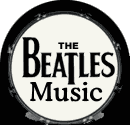
|
  


|
Paul McCartney
|

|
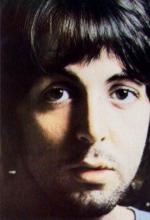 James Paul McCartney, born on June 18, 1942, Liverpool, England. Although commitments to the Beatles not unnaturally took precedence, bass player/vocalist McCartney nonetheless pursued several outside projects during this tenure. Many reflected friendships or personal preferences, ranging from production work for Cliff Bennett, Paddy, Klaus And Gibson and the Bonzo Dog Doo-Dah Band to appearances on sessions by Donovan, Paul Jones and Steve Miller (on Brave New World). He also wrote "Woman" for Peter And Gordon under the pseudonym Bernard Webb, but such contributions flourished more freely with the founding of Apple Records, where McCartney guided the early careers of Mary Hopkin and Badfinger and enjoyed cameos on releases by Jackie Lomax and James Taylor. However, despite this well-documented independence, the artist ensured a critical backlash by timing the release of McCartney to coincide with that of the Beatles' Let It Be and his announced departure from the band. His low-key debut was labeled self-indulgent, yet its intimacy was a welcome respite from prevailing heavy rock, and in "Maybe I'm Amazed", offered one of McCartney's finest songs.
James Paul McCartney, born on June 18, 1942, Liverpool, England. Although commitments to the Beatles not unnaturally took precedence, bass player/vocalist McCartney nonetheless pursued several outside projects during this tenure. Many reflected friendships or personal preferences, ranging from production work for Cliff Bennett, Paddy, Klaus And Gibson and the Bonzo Dog Doo-Dah Band to appearances on sessions by Donovan, Paul Jones and Steve Miller (on Brave New World). He also wrote "Woman" for Peter And Gordon under the pseudonym Bernard Webb, but such contributions flourished more freely with the founding of Apple Records, where McCartney guided the early careers of Mary Hopkin and Badfinger and enjoyed cameos on releases by Jackie Lomax and James Taylor. However, despite this well-documented independence, the artist ensured a critical backlash by timing the release of McCartney to coincide with that of the Beatles' Let It Be and his announced departure from the band. His low-key debut was labeled self-indulgent, yet its intimacy was a welcome respite from prevailing heavy rock, and in "Maybe I'm Amazed", offered one of McCartney's finest songs.
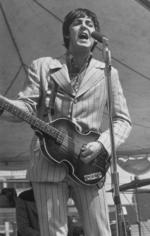 Ram, credited to McCartney and his wife Linda (born Linda Eastman, 24 September 1942, Scarsdale, New York, USA, died 17 April 1998), was also maligned as commentators opined that the singer lacked an acidic riposte to his often sentimental approach. The album nonetheless spawned a US number 1 in "Uncle Albert/Admiral Halsey", while an attendant single, "Another Day", reached number 2 in the UK. Drummer Denny Seiwell, who had assisted on these sessions, was invited to join a projected band, later enhanced by former Moody Blues' member Denny Laine. The quartet, dubbed Wings, then completed Wild Life, another informal set marked by an indifference to dexterity and the absorption of reggae and classic rock 'n' roll rhythms. Having expanded the lineup to include Henry McCullough (ex- Grease Band ; guitar), McCartney took the band on an impromptu tour of UK colleges, before releasing three wildly contrasting singles, "Give Ireland Back To The Irish" (banned by the BBC), "Mary Had A Little Lamb" and "Hi,Hi,Hi"/"C Moon" (all 1972). The following year, Wings completed "My Love", a sculpted ballad in the accepted McCartney tradition, and Red Rose Speedway, to that date his most formal set. Plans for the unit's fourth album were undermined by the defection of McCullough and Seiwell, but the remaining trio emerged triumphant from a series of productive sessions undertaken in a Lagos studio. Ram, credited to McCartney and his wife Linda (born Linda Eastman, 24 September 1942, Scarsdale, New York, USA, died 17 April 1998), was also maligned as commentators opined that the singer lacked an acidic riposte to his often sentimental approach. The album nonetheless spawned a US number 1 in "Uncle Albert/Admiral Halsey", while an attendant single, "Another Day", reached number 2 in the UK. Drummer Denny Seiwell, who had assisted on these sessions, was invited to join a projected band, later enhanced by former Moody Blues' member Denny Laine. The quartet, dubbed Wings, then completed Wild Life, another informal set marked by an indifference to dexterity and the absorption of reggae and classic rock 'n' roll rhythms. Having expanded the lineup to include Henry McCullough (ex- Grease Band ; guitar), McCartney took the band on an impromptu tour of UK colleges, before releasing three wildly contrasting singles, "Give Ireland Back To The Irish" (banned by the BBC), "Mary Had A Little Lamb" and "Hi,Hi,Hi"/"C Moon" (all 1972). The following year, Wings completed "My Love", a sculpted ballad in the accepted McCartney tradition, and Red Rose Speedway, to that date his most formal set. Plans for the unit's fourth album were undermined by the defection of McCullough and Seiwell, but the remaining trio emerged triumphant from a series of productive sessions undertaken in a Lagos studio.
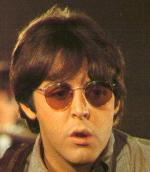 Band On The Run was undeniably a major achievement, and did much to restore McCartney's faltering reputation. Buoyed by adversity, the artist offered a passion and commitment missing from earlier albums and, in turn, reaped due commercial plaudits when the title song and "Jet" reached both US and UK Top 10 positions. The lightweight, but catchy, "Junior's Farm" provided another hit single before a reconstituted Wings, which now included guitarist Jimmy McCulloch (born 4 June 1953, died 27 September 1979; ex- Thunderclap Newman and Stone The Crows) and Joe English (drums), completed Venus And Mars, Wings At The Speed Of Sound and the expansive on-tour collection, Wings Over America. Although failing to scale the artistic heights of Band On The Run, such sets reestablished McCartney as a major figure and included best-selling singles such as "Listen To What The Man Said" (1975), "Silly Love Songs" and "Let 'Em In" (both 1976). Although progress was momentarily undermined by the departures of McCulloch and English, Wings enjoyed its most spectacular success with "Mull Of Kintyre" (1977), a saccharine paean to Paul and Linda's Scottish retreat which topped the UK charts for nine consecutive weeks and sold over 2.5 million copies in Britain alone. Band On The Run was undeniably a major achievement, and did much to restore McCartney's faltering reputation. Buoyed by adversity, the artist offered a passion and commitment missing from earlier albums and, in turn, reaped due commercial plaudits when the title song and "Jet" reached both US and UK Top 10 positions. The lightweight, but catchy, "Junior's Farm" provided another hit single before a reconstituted Wings, which now included guitarist Jimmy McCulloch (born 4 June 1953, died 27 September 1979; ex- Thunderclap Newman and Stone The Crows) and Joe English (drums), completed Venus And Mars, Wings At The Speed Of Sound and the expansive on-tour collection, Wings Over America. Although failing to scale the artistic heights of Band On The Run, such sets reestablished McCartney as a major figure and included best-selling singles such as "Listen To What The Man Said" (1975), "Silly Love Songs" and "Let 'Em In" (both 1976). Although progress was momentarily undermined by the departures of McCulloch and English, Wings enjoyed its most spectacular success with "Mull Of Kintyre" (1977), a saccharine paean to Paul and Linda's Scottish retreat which topped the UK charts for nine consecutive weeks and sold over 2.5 million copies in Britain alone.
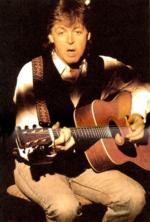 Although regarded as disappointing, London Town nevertheless included "With A Little Luck", a US number 1, but although Wings' newcomers Laurence Juber (guitar) and Steve Holly (drums) added weight to Back To The Egg, it, too, was regarded as inferior. Whereas the band was not officially disbanded until April 1981, McCartney's solo recordings, "Wonderful Christmastime" (1979), "Coming Up" (1980) and McCartney II, already heralded a new phase in the artist's career. However, if international success was maintained through duets with Stevie Wonder ("Ebony And Ivory"), Michael Jackson ("The Girl Is Mine") as well as "Say Say Say" and "Pipes Of Peace", attendant albums were marred by inconsistency. McCartney's 1984 feature film, Give My Regards To Broad Street, was maligned by critics, a fate befalling its soundtrack album, although the optimistic ballad, "No More Lonely Nights", reached number 2 in the UK. The artist's once-prolific output then noticeably waned, but although his partnership with 10cc guitarist Eric Stewart gave Press To Play a sense of direction, it failed to halt a significant commercial decline. Choba B CCCP, a collection of favoured "oldies" solely intended for release in the USSR, provided an artistic respite and publicity, before a much-heralded collaboration with Elvis Costello produced material for the latter's Spike and McCartney's own Flowers In The Dirt, arguably his strongest set since Venus And Mars. Although regarded as disappointing, London Town nevertheless included "With A Little Luck", a US number 1, but although Wings' newcomers Laurence Juber (guitar) and Steve Holly (drums) added weight to Back To The Egg, it, too, was regarded as inferior. Whereas the band was not officially disbanded until April 1981, McCartney's solo recordings, "Wonderful Christmastime" (1979), "Coming Up" (1980) and McCartney II, already heralded a new phase in the artist's career. However, if international success was maintained through duets with Stevie Wonder ("Ebony And Ivory"), Michael Jackson ("The Girl Is Mine") as well as "Say Say Say" and "Pipes Of Peace", attendant albums were marred by inconsistency. McCartney's 1984 feature film, Give My Regards To Broad Street, was maligned by critics, a fate befalling its soundtrack album, although the optimistic ballad, "No More Lonely Nights", reached number 2 in the UK. The artist's once-prolific output then noticeably waned, but although his partnership with 10cc guitarist Eric Stewart gave Press To Play a sense of direction, it failed to halt a significant commercial decline. Choba B CCCP, a collection of favoured "oldies" solely intended for release in the USSR, provided an artistic respite and publicity, before a much-heralded collaboration with Elvis Costello produced material for the latter's Spike and McCartney's own Flowers In The Dirt, arguably his strongest set since Venus And Mars.
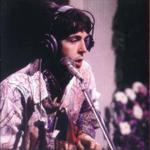 Paradoxically, singles culled from the album failed in the charts, but a world tour, on which the McCartneys were joined by Robbie McIntosh (ex- Pretenders ; guitar), Wix (keyboards), Hamish Stuart (ex- Average White Band ; bass/vocals) and Chris Whitten (drums), showed that his power to entertain was still intact. By drawing on material from the Beatles, Wings and solo recordings, McCartney demonstrated a prowess which has spanned a quarter of a century. The extent of his diversity was emphasized by his collaboration with Carl Davis on the classical "Liverpool Oratorio", which featured opera singer Dame Kiri Te Kanawa. Off The Ground received lukewarm reviews and soon dropped out of the charts after a brief run. The accompanying tour, however, was a different story. The ambitious stage show and effects undertook a world tour in 1993, and was one of the highest grossing tours in the USA during the year. Paradoxically, singles culled from the album failed in the charts, but a world tour, on which the McCartneys were joined by Robbie McIntosh (ex- Pretenders ; guitar), Wix (keyboards), Hamish Stuart (ex- Average White Band ; bass/vocals) and Chris Whitten (drums), showed that his power to entertain was still intact. By drawing on material from the Beatles, Wings and solo recordings, McCartney demonstrated a prowess which has spanned a quarter of a century. The extent of his diversity was emphasized by his collaboration with Carl Davis on the classical "Liverpool Oratorio", which featured opera singer Dame Kiri Te Kanawa. Off The Ground received lukewarm reviews and soon dropped out of the charts after a brief run. The accompanying tour, however, was a different story. The ambitious stage show and effects undertook a world tour in 1993, and was one of the highest grossing tours in the USA during the year.
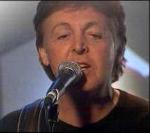 Various rumors circulated in 1994 about a reunion with the surviving members of his most famous band. Both he and Yoko Ono appeared to have settled their long-standing differences, as had George Harrison and McCartney. The success in 1994-95 of the Beatles At The BBC indicated a ripe time for some kind of musical reunion. This was partly achieved with the overdubbing of "Free As A Bird" and "Real Love" for the magnificent Anthology series in 1996. The profile of the Beatles had rarely been higher and this was celebrated in the new year honors list by a knighthood for services to music to McCartney. Presumably this was in recognition for his outstanding work with Lennon. Various rumors circulated in 1994 about a reunion with the surviving members of his most famous band. Both he and Yoko Ono appeared to have settled their long-standing differences, as had George Harrison and McCartney. The success in 1994-95 of the Beatles At The BBC indicated a ripe time for some kind of musical reunion. This was partly achieved with the overdubbing of "Free As A Bird" and "Real Love" for the magnificent Anthology series in 1996. The profile of the Beatles had rarely been higher and this was celebrated in the new year honors list by a knighthood for services to music to McCartney. Presumably this was in recognition for his outstanding work with Lennon.
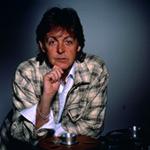 No doubt spurred on by the Anthology, Flaming Pie sounded like McCartney meant it again. The addition of Steve Miller on three tracks added some gutsy rock guitar credibility. Mostly however, it was a magnificent return to form. Jeff Lynne 's production was tempered to sound cooked to perfection, unlike some of his previous overbaked concoctions. This was most definitely for lovers of the Beatles' The Beatles. The varied contents included "Heaven On A Sunday", with its descending acoustic guitar dueling with the ascending lead guitar of son James, and "Used To Be Bad", an excellent simple up-tempo blues featuring Miller, both singers trading lines as their voices blended beautifully. Further tracks included the Memphis soul of "Souvenir", and "In It For The Money", which never loses pace for one moment. The folk simplicity of "Calico Skys" was topped by the exquisite "Somedays", a heart-tugging love song to Linda, and one of his finest songs in many decades. His love for his wife shone through the whole record. (Sadly, Linda lost her battle with cancer the following year, but was honored with a memorial service on 9 June in London's Trafalgar Square.) Flaming Pie should ideally be listened to as one piece, since, in that context, it sounds like a minor masterpiece. No doubt spurred on by the Anthology, Flaming Pie sounded like McCartney meant it again. The addition of Steve Miller on three tracks added some gutsy rock guitar credibility. Mostly however, it was a magnificent return to form. Jeff Lynne 's production was tempered to sound cooked to perfection, unlike some of his previous overbaked concoctions. This was most definitely for lovers of the Beatles' The Beatles. The varied contents included "Heaven On A Sunday", with its descending acoustic guitar dueling with the ascending lead guitar of son James, and "Used To Be Bad", an excellent simple up-tempo blues featuring Miller, both singers trading lines as their voices blended beautifully. Further tracks included the Memphis soul of "Souvenir", and "In It For The Money", which never loses pace for one moment. The folk simplicity of "Calico Skys" was topped by the exquisite "Somedays", a heart-tugging love song to Linda, and one of his finest songs in many decades. His love for his wife shone through the whole record. (Sadly, Linda lost her battle with cancer the following year, but was honored with a memorial service on 9 June in London's Trafalgar Square.) Flaming Pie should ideally be listened to as one piece, since, in that context, it sounds like a minor masterpiece.
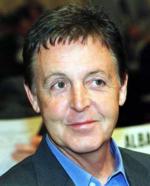 In March 1999, McCartney was inducted into the Rock And Roll Hall Of Fame as a solo artist. Later in the year he recorded another back-to-basics collection of 50s rock 'n' roll cover versions, including three new tracks. Run Devil Run was an excellent collection and included versions of "All Shook Up" and "Brown Eyed Handsome Man" in addition to lesser known material, notably "No Other Baby". This little known track, a smoldering slow blues, was recorded by the UK skiffle group, the Vipers in the late 50s. On 14 December 1999, McCartney took himself back to the famous Cavern club with his studio band, comprising guitarists Mick Green (ex-Pirates) and David Gilmour, keyboardist Pete Wingfield, and drummer Ian Paice. In reality, it was a rebuilt Cavern, next door to the original cellar. Musically however McCartney seemed fired up, singing and playing with an energy not seen for many years. In other areas McCartney might be seen as an overachiever, with his original paintings getting media coverage in 2000, and his book of poetry the following year. In March 1999, McCartney was inducted into the Rock And Roll Hall Of Fame as a solo artist. Later in the year he recorded another back-to-basics collection of 50s rock 'n' roll cover versions, including three new tracks. Run Devil Run was an excellent collection and included versions of "All Shook Up" and "Brown Eyed Handsome Man" in addition to lesser known material, notably "No Other Baby". This little known track, a smoldering slow blues, was recorded by the UK skiffle group, the Vipers in the late 50s. On 14 December 1999, McCartney took himself back to the famous Cavern club with his studio band, comprising guitarists Mick Green (ex-Pirates) and David Gilmour, keyboardist Pete Wingfield, and drummer Ian Paice. In reality, it was a rebuilt Cavern, next door to the original cellar. Musically however McCartney seemed fired up, singing and playing with an energy not seen for many years. In other areas McCartney might be seen as an overachiever, with his original paintings getting media coverage in 2000, and his book of poetry the following year.
|

|

|
|

|

|
|